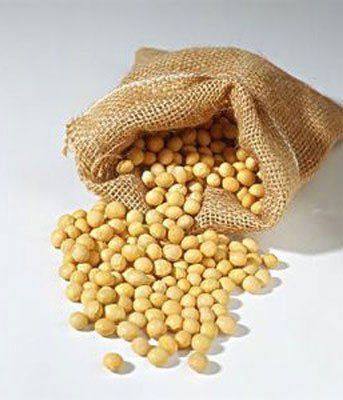Chinese people have the habit of eating "beans," such as red beans, mung beans and their soy products, which are already "frequent customers" on people's dining tables. Although red beans and mung beans are both human health “guardiansâ€, “disposition†is not exactly the same. Chinese medicine believes that red beans are flat, sweet and sour, non-toxic, have nourishing and strengthening, spleen and stomach, water dehumidification, detoxification, through milk and blood, especially suitable for a variety of edema patients diet.

However, in recent years, the beneficial effects of soy protein on the kidneys have received considerable attention. In particular, improving the quality metabolism is superior to animal protein. The use of estrogen-rich plant proteins can significantly delay the progression of kidney disease. Dr. Al Mindell, a nutritionist, thought that for the kidney filter, soy protein is more suitable than animal protein, soy protein can slow or prevent the damage of the kidney, so as to protect the kidney. It is recommended that soy protein should not be included as a fasting diet in the treatment of low protein diets. Patients with chronic kidney disease who have a low-protein diet may have the following benefits: (1) A low-protein diet reduces gastrointestinal symptoms and helps prevent metabolic acidosis, hyperkalemia, and hyperphosphatemia. (2) Low-protein diet can make the body reuse ammonia nitrogen of urea to synthesize non-essential amino acids and proteins at the time of low protein supply to reduce or prevent the deterioration of renal function. (3) Low-protein diet can reduce glomerular filtration rate and high metabolism, delay the deterioration of renal function.
Soy protein is a complete protein with high biological potency, and it is the main part of soybean, accounting for about 35% to 50%, belonging to globulins. Soy protein contains many special ingredients, such as isoflavones, L-arginine and L-lysine, methionine, peptides, saponins, phytic acid, fiber and insulin inhibitors. The ingredients exert different physiological effects, of which the effect of soy isoflavones plays a decisive role. Isoflavones are structurally similar to endogenous estrogen and estradiol and therefore have weak estrogen-like effects; they also show cholesterol-lowering, anti-oncogene and antioxidant effects. Soy protein is rich in lysine, and its methionine content is relatively low. The rest is almost identical to animal protein. Soybean saponin can always be the oxidation of lipids in serum, inhibit the formation of lipid peroxidation, has anti-oxidation, anti-free radical effects, and can reduce blood cholesterol and triglyceride content. Phytic acid can help control the level of blood squama, so it may have a certain impact on the calcium and phosphorus metabolism of chronic kidney disease.
China has a long history of eating beans and soy products. Soybean products are rich in types such as bean flour, bean juice, and tofu. In addition, the soybean protein content in northeast China is high and nutritious. Asians eat relatively more soy, and it is estimated that people in mainland China consume about 10 grams per day, and Taiwan and Japan 30 to 50 grams, which is equivalent to eating 20 to 80 milligrams of isoflavones. Long-term consumption of soy isoflavones and their products may reduce the incidence of breast cancer and prostate cancer. At the same time, plant protein instead of animal protein can reduce the occurrence of cardiovascular disease. Soaking 30 to 50 grams of soybeans every day will reduce lipids, and every 1% decrease in serum total cholesterol will reduce the incidence of cardiovascular disease by 2%.
The relationship between soybean and kidney has long been recognized by TCM. For example, “Huangdi Neijing·Suwen†said: “The north is black and it enters the kidney...†and the “Classic Classics†has a deeper understanding of the relationship between soybean and kidney disease. “Spleen disease, Yi Shi rice beef Jujube Kwai ... kidney disease, Yi Shi Huang yellow pork pork chestnut soup" In the long-term Chinese medical practice, Chixiaodou, black soybean as a commonly used drug or thing for the treatment of edema, and has a good role in adjuvant therapy.
Dehydrated Carrot Without Sugar,Air-Dried Carrot Flakes,Dehydrated Carrot Flakes,Ad Carrot Flakes
Xinghua Jiahe Foods Co., Ltd. , https://www.jiahefoods.com